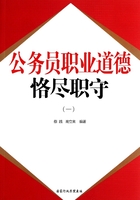The Same Subject Continued(Concerning Dangers from Foreign Force and Influence
For the Independent Journal. Saturday, November 3,1787
JAY
To the People of the State of New York:
IT IS not a new observation that the people of any country (if, like the Americans, intelligent and well informed) seldom adopt and steadily persevere for many years in an erroneous opinion respecting their interests. That consideration naturally tends to create great respect for the high opinion which the people of America have so long and uniformly entertained of the importance of their continuing firmly united under one federal government, vested with sufficient powers for all general and national purposes.
The more attentively I consider and investigate the reasons which appear to have given birth to this opinion, the more I become convinced that they are cogent and conclusive.
Among the many objects to which a wise and free people find it necessary to direct their attention, that of providing for their SAFETY seems to be the first.The SAFETY of the people doubtless has relation to a great variety of circumstances and considerations, and consequently affords great latitude to those who wish to define it precisely and comprehensively
At present I mean only to consider it as it respects security for the preservation of peace and tranquility,as well as against dangers from FOREIGN ARMS AND INFLUENCE, as from dangers of the LIKE KIND arising from domestic causes. As the former of these comes first in order, it is proper it should be the first discussed. Let us therefore proceed to examine whether the people are not right in their opinion that a cordial Union, under an efficient national government,affords them the best security that can be devised against HOSTILITIES from abroad.
The number of wars which have happened or will happen in the world will always be found to be in proportion to the number and weight of the causes,whether REAL or PRETENDED, which PROVOKE or INVITE them. If this remark be just, it becomes useful to inquire whether so many JUST causes of war are likely to be given by UNITED AMERICA as by DISUNITED America; for if it should turn out that United America will probably give the fewest, then it will follow that in this respect the Union tends most to preserve the people in a state of peace with other nations.
The JUST causes of war, for the most part, arise either from violation of treaties or from direct violence. America has already formed treaties with no less than six foreign nations, and all of them, except Prussia, are maritime, and therefore able to annoy and injure us. She has also extensive commerce with Portugal, Spain, and Britain, and, with respect to the two latter, has, in addition, the circumstance of neighborhood to attend to.
It is of high importance to the peace of America that she observe the laws of nations towards all these powers, and to me it appears evident that this will be more perfectly and punctually done by one national government than it could be either by thirteen separate States or by three or four distinct confederacies.
Because when once an efficient national government is established, the best men in the country will not only consent to serve, but also will generally be appointed to manage it; for, although town or country,or other contracted influence, may place men in State assemblies, or senates, or courts of justice, or executive departments, yet more general and extensive reputation for talents and other qualifications will be necessary to recommend men to offices under the national government,—especially as it will have the widest field for choice, and never experience that want of proper persons which is not uncommon in some of the States. Hence, it will result that the administration,the political counsels, and the judicial decisions of the national government will be more wise, systematical,and judicious than those of individual States, and consequently more satisfactory with respect to other nations, as well as more SAFE with respect to us.
Because, under the national government, treaties and articles of treaties, as well as the laws of nations,will always be expounded in one sense and executed in the same manner,—whereas, adjudications on the same points and questions, in thirteen States, or in three or four confederacies, will not always accord or be consistent; and that, as well from the variety of independent courts and judges appointed by different and independent governments, as from the different local laws and interests which may affect and influence them. The wisdom of the convention, in committing such questions to the jurisdiction and judgment of courts appointed by and responsible only to one national government, cannot be too much commended.
Because the prospect of present loss or advantage may often tempt the governing party in one or two States to swerve from good faith and justice; but those temptations, not reaching the other States, and consequently having little or no influence on the national government, the temptation will be fruitless, and good faith and justice be preserved. The case of the treaty of peace with Britain adds great weight to this reasoning.
Because, even if the governing party in a State should be disposed to resist such temptations, yet as such temptations may, and commonly do, result from circumstances peculiar to the State, and may affect a great number of the inhabitants, the governing party may not always be able, if willing, to prevent the injustice meditated, or to punish the aggressors. But the national government, not being affected by those local circumstances, will neither be induced to commit the wrong themselves, nor want power or inclination to prevent or punish its commission by others.
So far, therefore, as either designed or accidental violations of treaties and the laws of nations afford JUST causes of war, they are less to be apprehended under one general government than under several lesser ones, and in that respect the former most favors the SAFETY of the people.
As to those just causes of war which proceed from direct and unlawful violence, it appears equally clear to me that one good national government affords vastly more security against dangers of that sort than can be derived from any other quarter.
Because such violences are more frequently caused by the passions and interests of a part than of the whole; of one or two States than of the Union. Not a single Indian war has yet been occasioned by aggressions of the present federal government, feeble as it is; but there are several instances of Indian hostilities having been provoked by the improper conduct of individual States, who, either unable or unwilling to restrain or punish offenses, have given occasion to the slaughter of many innocent inhabitants.The neighborhood of Spanish and British territories,bordering on some States and not on others, naturally confines the causes of quarrel more immediately to the borderers. The bordering States, if any, will be those who, under the impulse of sudden irritation, and a quick sense of apparent interest or injury, will be most likely, by direct violence, to excite war with these nations; and nothing can so effectually obviate that danger as a national government, whose wisdom and prudence will not be diminished by the passions which actuate the parties immediately interested.
But not only fewer just causes of war will be given by the national government, but it will also be more in their power to accommodate and settle them amicably. They will be more temperate and cool, and in that respect, as well as in others, will be more in capacity to act advisedly than the offending State. The pride of states, as well as of men, naturally disposes them to justify all their actions, and opposes their acknowledging, correcting, or repairing their errors and offenses. The national government, in such cases,will not be affected by this pride, but will proceed with moderation and candor to consider and decide on the means most proper to extricate them from the difficulties which threaten them
Besides, it is well known that acknowledgments,explanations, and compensations are often accepted as satisfactory from a strong united nation, which would be rejected as unsatisfactory if offered by a State or confederacy of little consideration or power.
In the year 1685, the state of Genoa having offended Louis XIV., endeavored to appease him. He demanded that they should send their Doge, or chief magistrate,accompanied by four of their senators, to FRANCE,to ask his pardon and receive his terms. They were obliged to submit to it for the sake of peace. Would he on any occasion either have demanded or have received the like humiliation from Spain, or Britain, or any other POWERFUL nation?
PUBLIUS















